There was an article that ran in the Washington Times yesterday whose headline was, “Plan to cut weapons programs disputed.” The basic gist of the article was that Obama’s plan to reorganize defense spending (not cut, since he is expanding the defense budget by $20 billion to a total of $534 billion, a point often overlooked by opponents of his plan) is going to destroy American jobs, namely the F-22 Raptor, a state of the art, kick-ass plane guaranteed to provide air superiority for the next thousand years (but that hasn’t been used once in either Iraq or Afghanistan, despite what the ‘Iron Man’ movie would have you believe.)

Now that's a program worth funding!
For example, the article quotes Jeff Goen, president of the International Association of Machinists and Aerospace Workers chapter in Marietta, GA, (which is only one of the 44 states the F22 is built in) who states, “It doesn’t make sense that our government is looking at trying to save or create jobs at the same time it’s talking about cutting something like this [the F22].” What I love about this argument is that it completely strips away the thin veneer of strategic necessity and gets right to the core of the issue. Usually, whenever people try and talk up defense programs that are threatened with termination, they frame it in a strategic context, such as, ‘we need [insert program here] because it’s vital to our national security.’ It doesn’t matter what the program is or what it is supposed to do, it is always claimed to be vital to the welfare of our national security. Not this time. This article states point blank that the only reason people are upset about the proposed cancellation of the F22 is the potential loss of jobs. Stop me if I’m wrong, but at what point did economic impact factor into decisions regarding the procurement of weapon systems? I always thought that the weapons we bought were based on objective analysis of future threats and what was needed to combat them. OK, so I never really believed that, but still, it’s a nice thought. Anyways, back to the article.
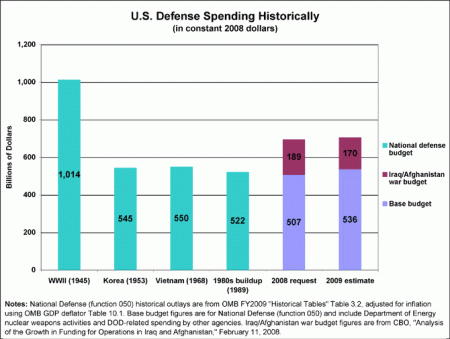
Now that we have finally gotten past the BS argument that these soon-to-be-cancelled programs are ‘strategically important’ and admit that all we are really concerned about are jobs, that then begs the question of, ‘why not use the military as an economic stimulator?’ Strangely enough, there is precedent here: The great depression ended not because of massive social programs, but because of WWII, which required that millions of people go to work in factories that were suddenly spewing out more industrial products than at any time in world history. So why not simply do this again? Well, since you asked, it’s because the military already has most of what it needs! Prior to WWII, the military had nothing compared to today where emergency war supplies are simply sitting on ships and in warehouses waiting to be used – building a couple hundred planes or ships will do nothing to stimulate the economy in the long run simply because it’s not enough. At the height of WWII, defense spending equaled 42% of GDP, whereas today, even with the proposed increases, it will remain below 5%. In case you don’t have an advanced degree in economics (don’t worry, neither do I) 42% of GDP is UNBELIEVABLY HIGH, and short of an imminent nuclear apocalypse, we will probably never again see anything that even remotely approaches WWII levels. In other words, for the military to act as an economic stimulator, we would have to increase our defense spending from it’s current level of 4% to 42% of GDP. The only way that would ever happen is if the Soviets suddenly parachuted onto the football field of a Midwest high school. (In which case, all we would need is a high school football team armed with hunting rifles – Go Wolverines!)
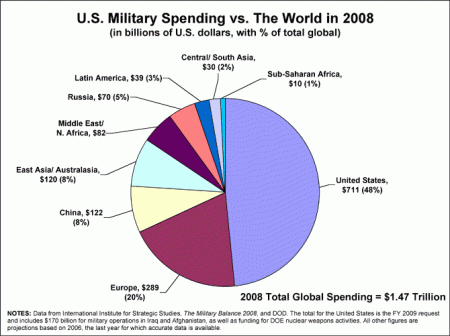
As a side note, I have one question I would like to ask these defense hawks: How is it possible that the total cost overrun for all our defense programs is greater than the total combined defense spending of the NEXT SIX COUNTRIES ADDED TOGETHER yet we still don’t spend enough on defense?! I fully understand the threats that are out there and I fully concur that they need to be addressed, but how is it that we spend so much money on defense relative to the rest of the world yet never feel safe? It is perhaps becuase we’re spending money on the wrong things…?
Anyways, to wrap this whole thing up, ignoring that Obama is actually increasing the defense budget, and that these ‘poor, soon to be out of work machinists’ will simply get transferred from the F22 line to the F35 line (which is built by the same company), all these people who are up in arms about the defense budget have accomplished is show their true colors: It’s not national security that drives their concerns, it’s their pocketbooks, and that is a flimsy pretense on which to base one’s national security strategy.

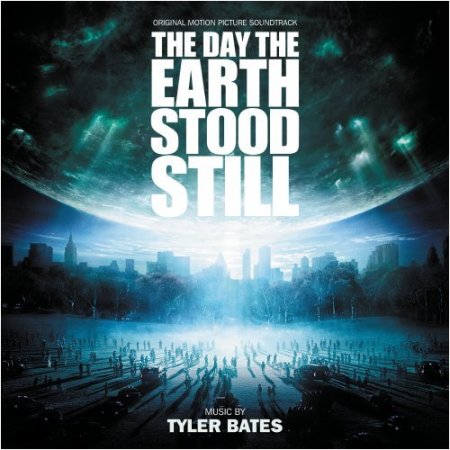

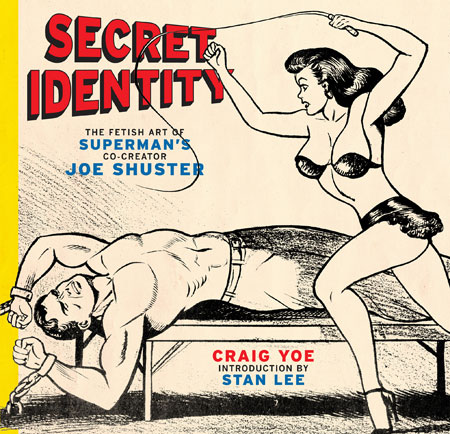

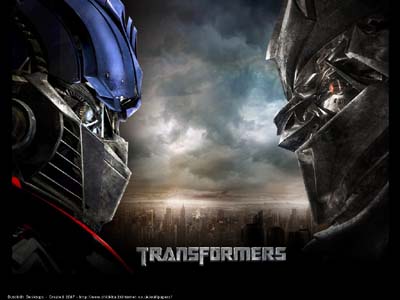

 Today marked the first time I forgot to bring my lunch and had no one to go to lunch with. Accordingly, I ventured out on my own in search of sustenance and stumbled upon a Subway. I imagine the feelings I experienced were a lot like Moses finally setting eyes upon the promised land, the only difference being I was allowed to go in. Now, in order for me to properly and fully explain just how magnificent this Subway was compared to the one I had previously patronized, I must first explain just how awful the previous Subway was.
Today marked the first time I forgot to bring my lunch and had no one to go to lunch with. Accordingly, I ventured out on my own in search of sustenance and stumbled upon a Subway. I imagine the feelings I experienced were a lot like Moses finally setting eyes upon the promised land, the only difference being I was allowed to go in. Now, in order for me to properly and fully explain just how magnificent this Subway was compared to the one I had previously patronized, I must first explain just how awful the previous Subway was. 